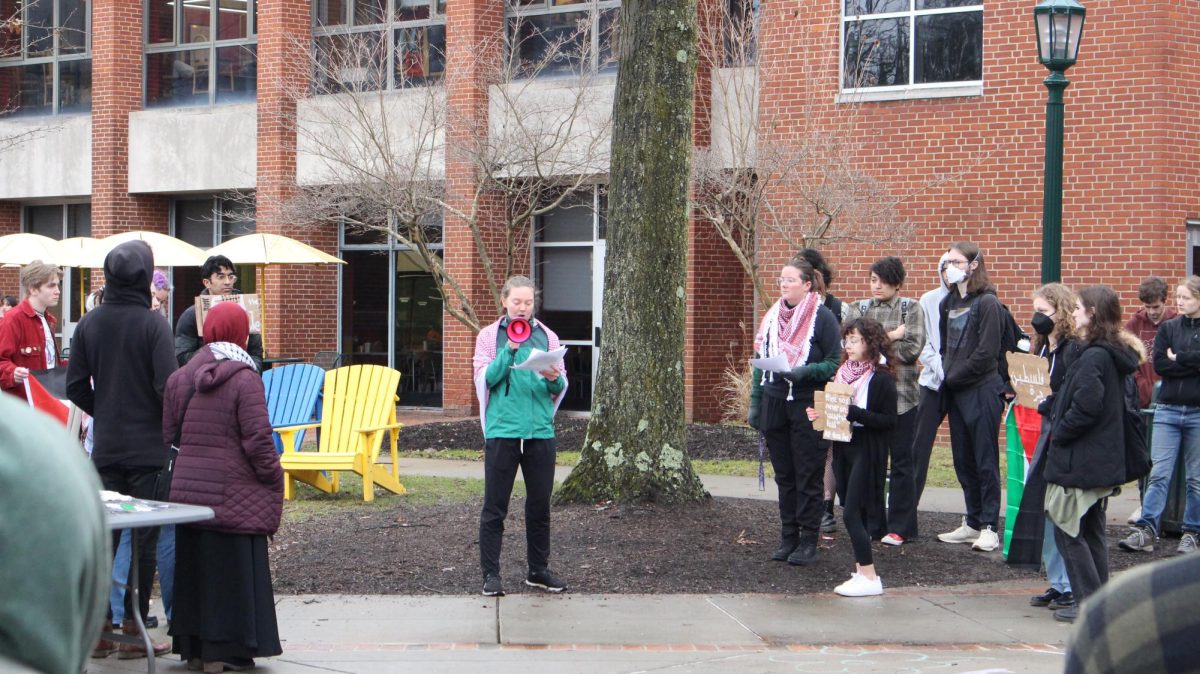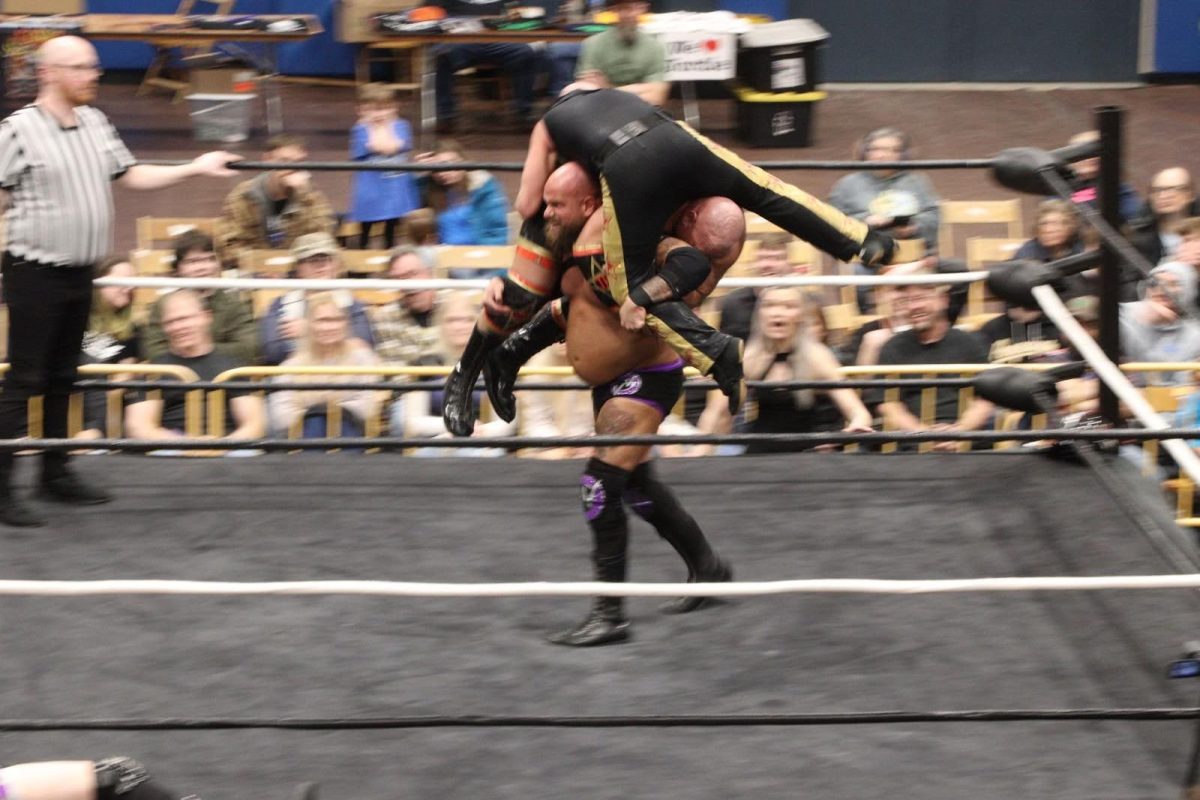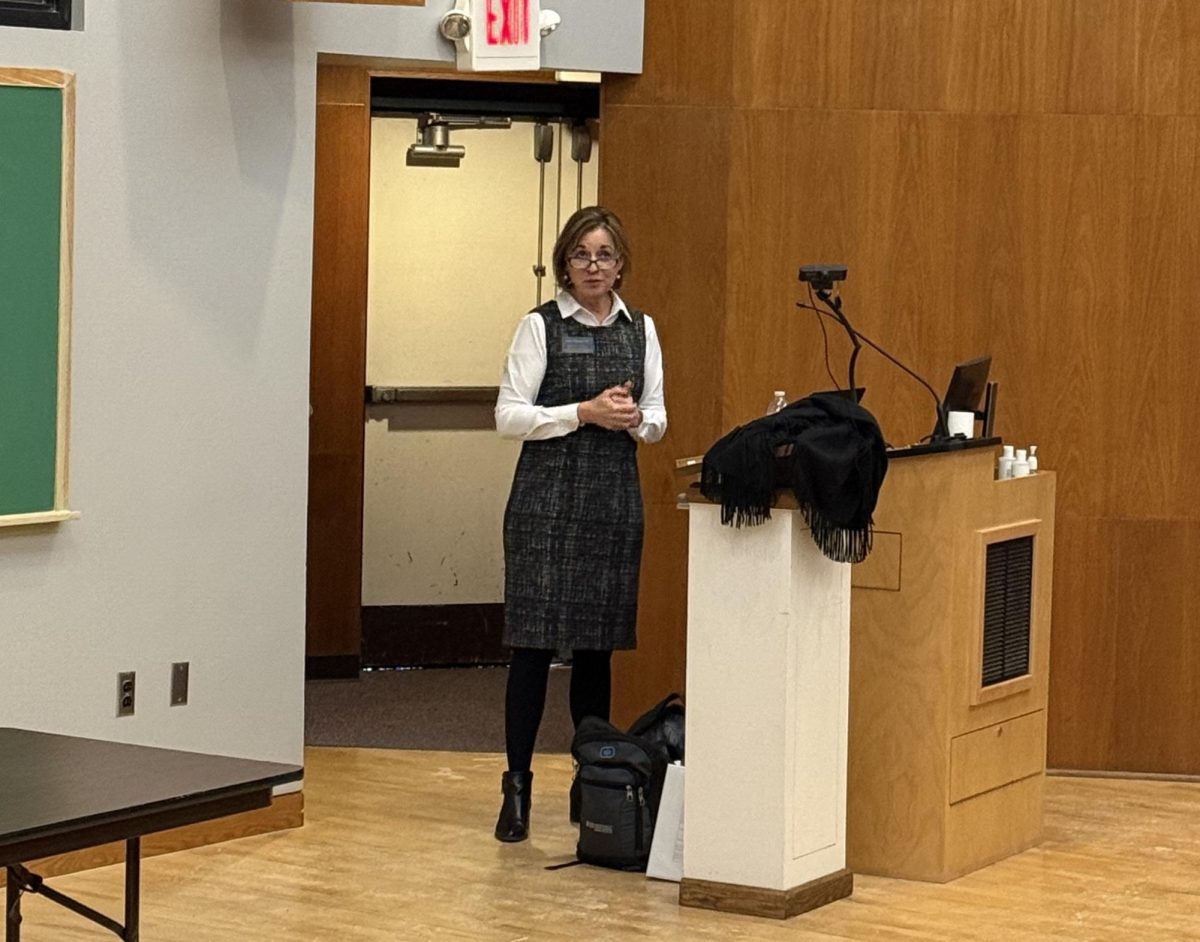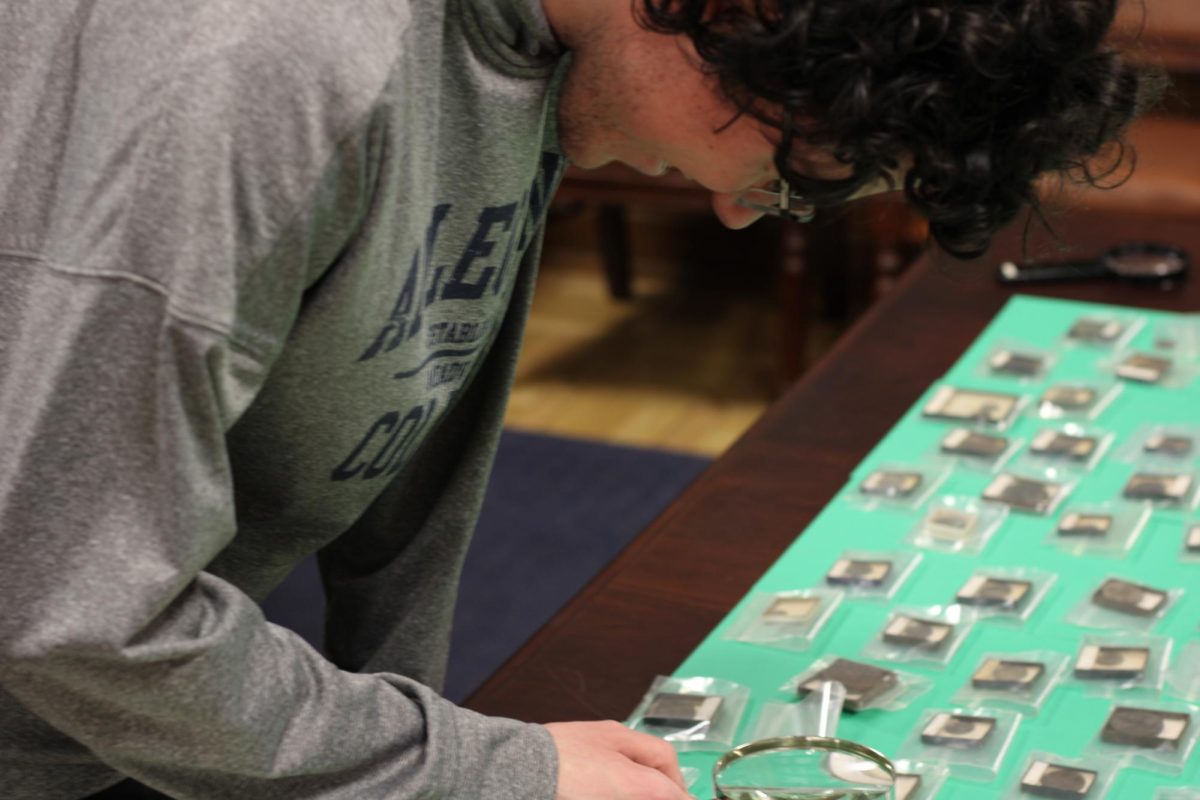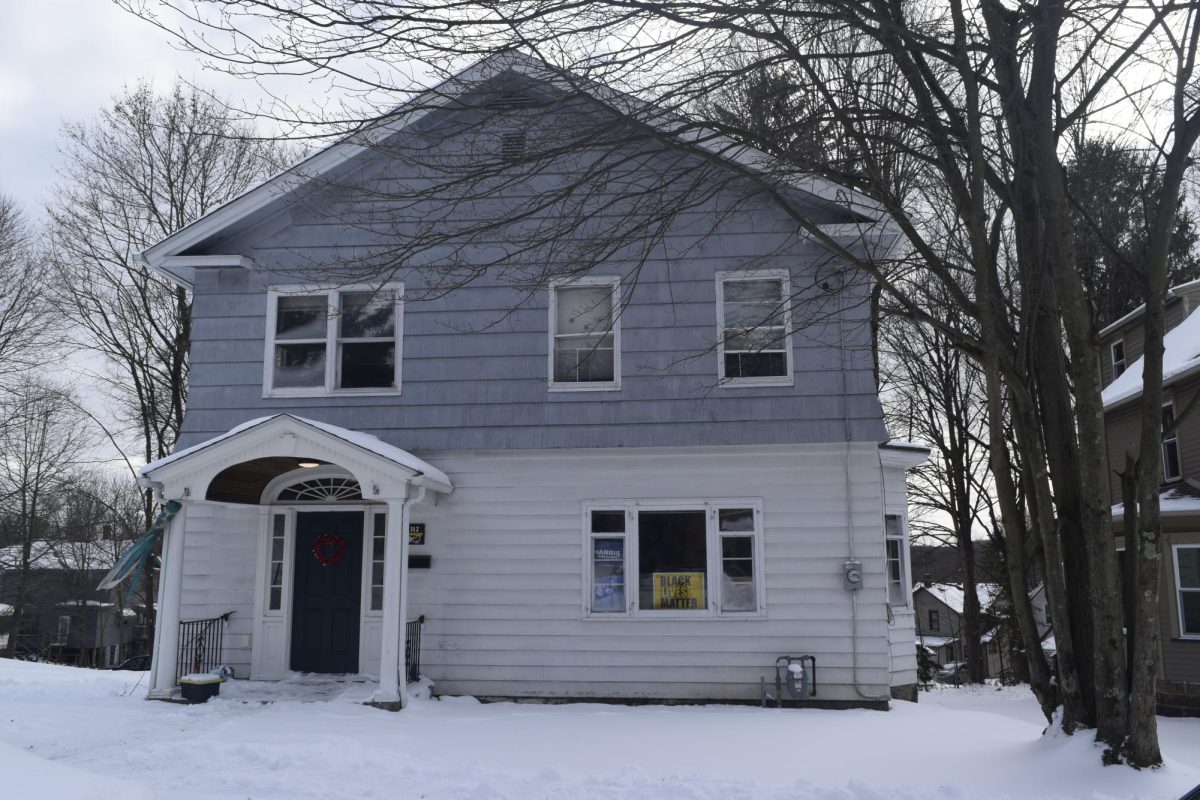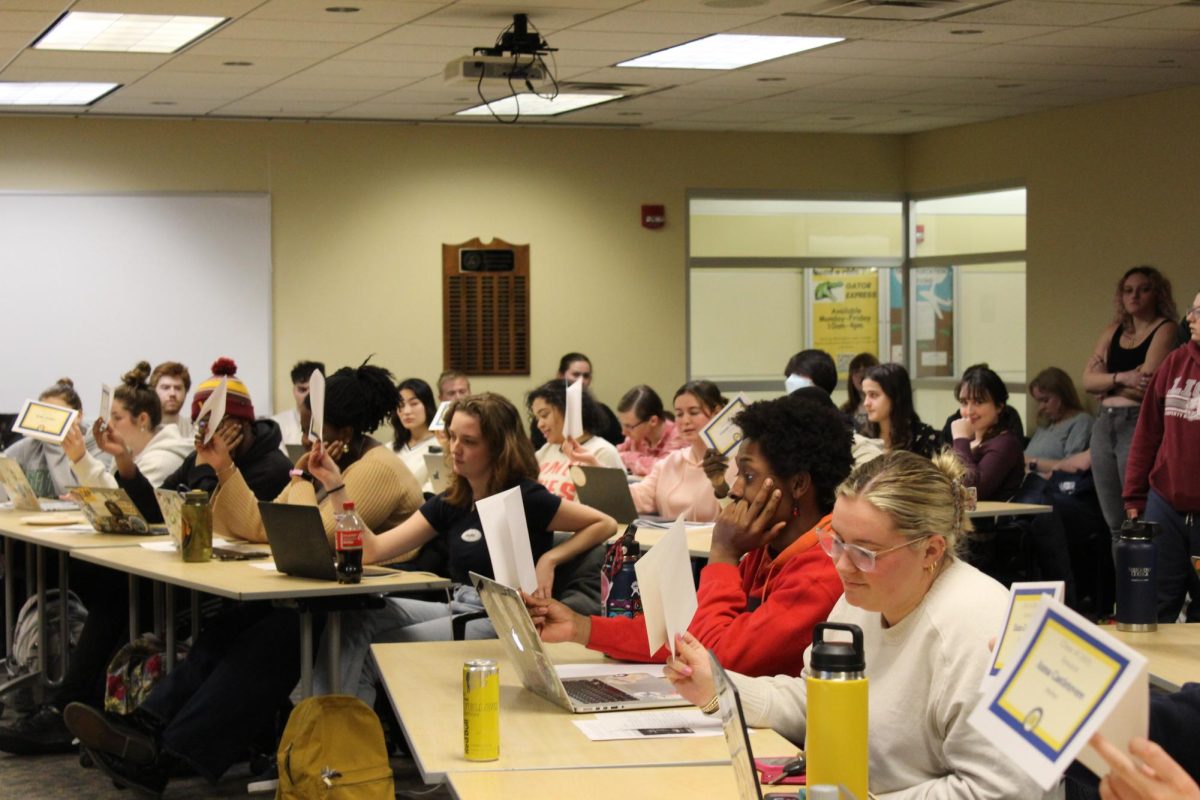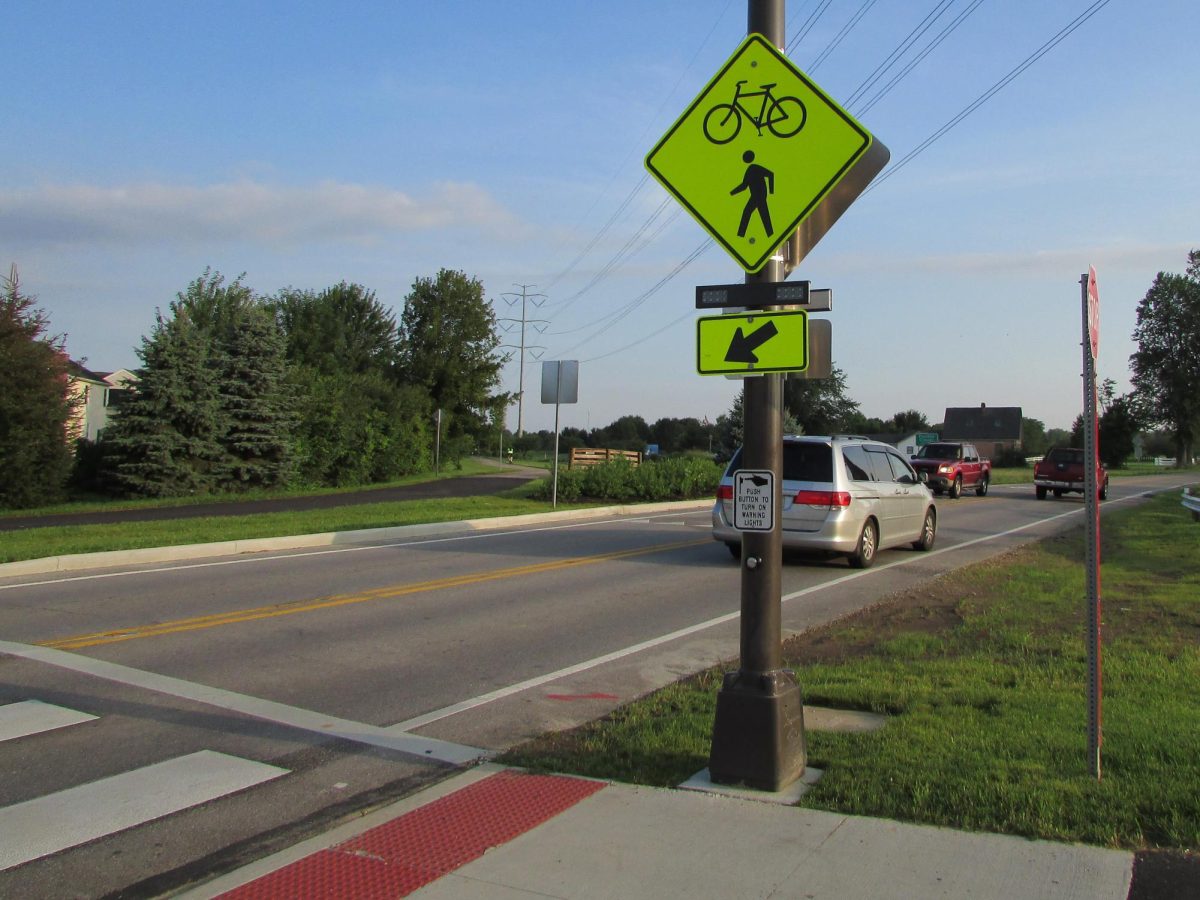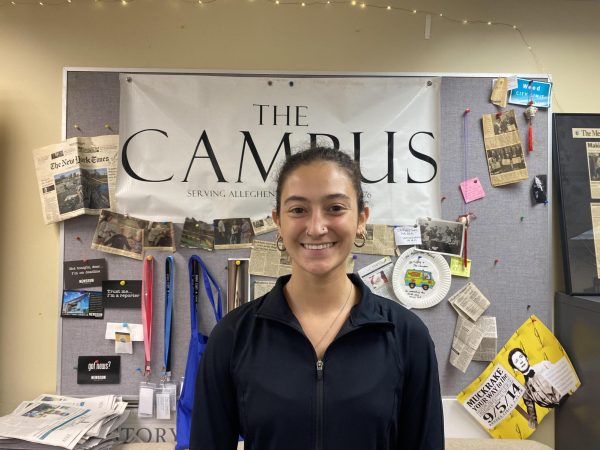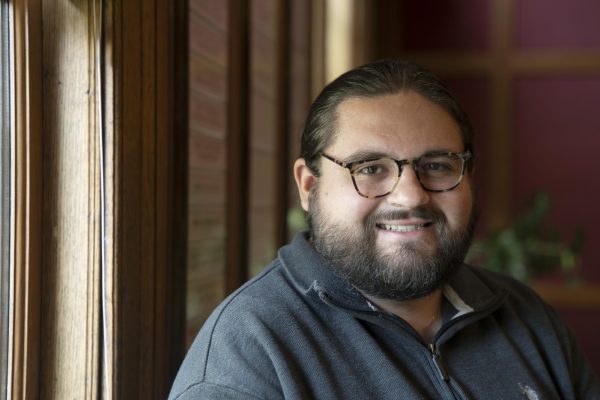The solemn faces of more than 80 students and faculty gathered outside the Henderson Campus Center just after noon on Friday, Jan. 26.
Dozens of students held signs, written in both English and Arabic, calling for a cease-fire in the current conflict between Israel and Hamas in the Gaza Strip. One sign read, “There was never an acceptable loss — let Gaza live.”
The rally was led by student organizers with the intent to educate and spread awareness of Israel’s current invasion of Gaza. Israeli forces have killed almost 27,000 Palestinians and displaced almost the entire population of the strip since October, according to Al-Jazeera. Israel has defended its actions — which have been called a genocide by scholars and human rights advocates — as justified retaliation for an Oct. 7 attack by militant group Hamas that killed just over 1,100 Israelis. Hamas has ruled the Gaza Strip since 2007.
Syd Hammerman, ’25, first came up with the idea of the rally in December. Hammerman described the suffering of the civilians, relaying statistics on starvation and disease as well as military attacks.
“Based on the fall 2022 population of Allegheny, which stood at 1,353 students, the total population of Gaza killed thus far is equivalent to every single Allegheny student being killed 19.3 times over,” Hammerman said. “This figure increases every day.”
Hammerman and nine other student organizers first introduced the idea to several professors and then Dean for the Student Experience Ian Binnington. Once they knew the college was on board and safety measures for the students were in place, the plans continued from there.
“We figured out what we wanted to say and how we wanted to say it,” said Ella Rochford, ’25, another organizer for the rally. “The biggest part of today was making sure we had safety for the students and everyone here.”
College students around the country that have spoken out in support of a cease-fire have faced backlash — most notably at Harvard University, when members of the Harvard Undergraduate Palestine Solidarity Committee signed a statement in which they held the Israeli government “entirely responsible for the unfolding violence,” according to the Harvard Crimson.
“There have been a lot of incidents on other campuses where people who protest have been doxed, kicked out of school and refused jobs,” Rochford said. “We wanted to make sure that didn’t happen here, that everyone was safe, so there were a lot of safety precautions.”
Just hours before the rally took place, the International Court of Justice released preliminary rulings in which they called for the prevention of genocide in Gaza, though the court stopped short of calling for a cease-fire. A full ruling in the case, brought by South Africa against the Israeli government, is not expected for years.
Rochford said the fact that the timing of the rally coincided with the court’s decision wasn’t intentional, but did work in their favor.
“We wanted to do something as soon as possible, at a time where as many people could be here as possible,” Rochford said. “We weren’t sure how many people were going to come, but it was a success.”
There were seven speakers in total at the rally. Aside from the harrowing death toll, the students also spoke about the civilians caught in the crossfire of violence in countries such as Sudan, the Democratic Republic of the Congo, Ethiopia, Ukraine, Syria and more.
One such act of violence hit closer to home, as Julia Sonen, ’24, mentioned the murder of six-year-old Wadea Al-Fayoume, a Palestinian-American boy stabbed to death by his landlord in Chicago, Illinois.
Each speaker urged students to stay educated on the conflict and to be aware of the world outside of the Allegheny community “bubble.”
“I talked to people, and a lot of people said that they can’t make much of a difference, but I don’t think that’s true,” said Hussain Minhas, ’24. “Raise awareness, make people learn something that they didn’t already know…That’s a step in the right direction.”
Minhas read aloud “If I Must Die,” a poem by Refaat Alareer, a Palestinian writer, poet and activist. Alareer was killed in an Israeli airstrike on Dec. 6 along with six of his family members.
Minhas, who serves as the Islamic Cultural Association treasurer, is originally from Pakistan, which was part of his motivation for participating in the rally.
“Back in Pakistan, we’ve always had solidarity with the Palestinians, more so because of the religion that we share,” Minhas said. “But in the U.S., I know there’s a lot of hatred and discrimination towards brown people and Muslim people and the U.S. media doesn’t really show that these people are suffering. For years and years, Palestinians have been asking that the world shares what they are going through and raises voice for them, and that’s not really happening in this country as the government actively tries to suppress them.”
During the rally, several speakers mentioned the impact of language in the media. This stemmed from the bias many speakers believe the U.S. government has in favor of Israel, a longtime American ally.
“Language affects how you approach what you hear,” Associate Professor of Arabic Language and Literature Reem Hilal said after the rally.
Hilal offered her counsel during the initial planning stages of the event and helped rally organizers figure out what exactly they wanted to say. Hilal said when she sees students being passionate about something important, she wants to support them.
In November, Hilal participated in a panel on the Israel-Hamas war where she explained the effects of language bias in the media. Hilal said that in the reporting of Gaza in particular, the subtle difference between “killed” and “died” can convey two very different meanings.
“We generally will be more sympathetic if someone is killed by someone else and see them as a victim,” Hilal said. “Versus ‘died’ — you may not necessarily see them as a victim unless you knew who killed them. So language completely affects how people approach this conflict.”
Aside from being an academic, Hilal’s presence at the rally was personal.
“As an Arab-American, it’s been challenging to see everything unfold,” Hilal said. “On a personal level, I have kids and I can see my kids’ features, and they share similar features, so it’s hard to see young children suffering and being fortunate that my kids are safe.”
Hilal also recalled Dina Dalloul, Fulbright Teaching Assistant who worked at Allegheny. Dalloul was originally from Gaza City, where she lived with her young child and family members. Hilal last heard from Dalloul on Oct. 11, 2023.
After the speeches were finished, students and faculty were asked to have a moment of silence. Afterward, all were encouraged to plant a white flag in honor of the Palestinian lives lost, each one representing 130 people killed.
When the rally concluded and the crowd dispersed, all that remained were the dozens of small white flags in remembrance of lives lost.




